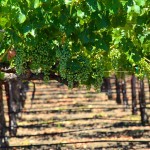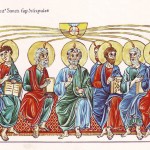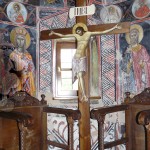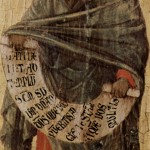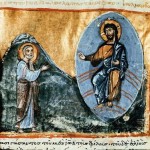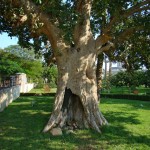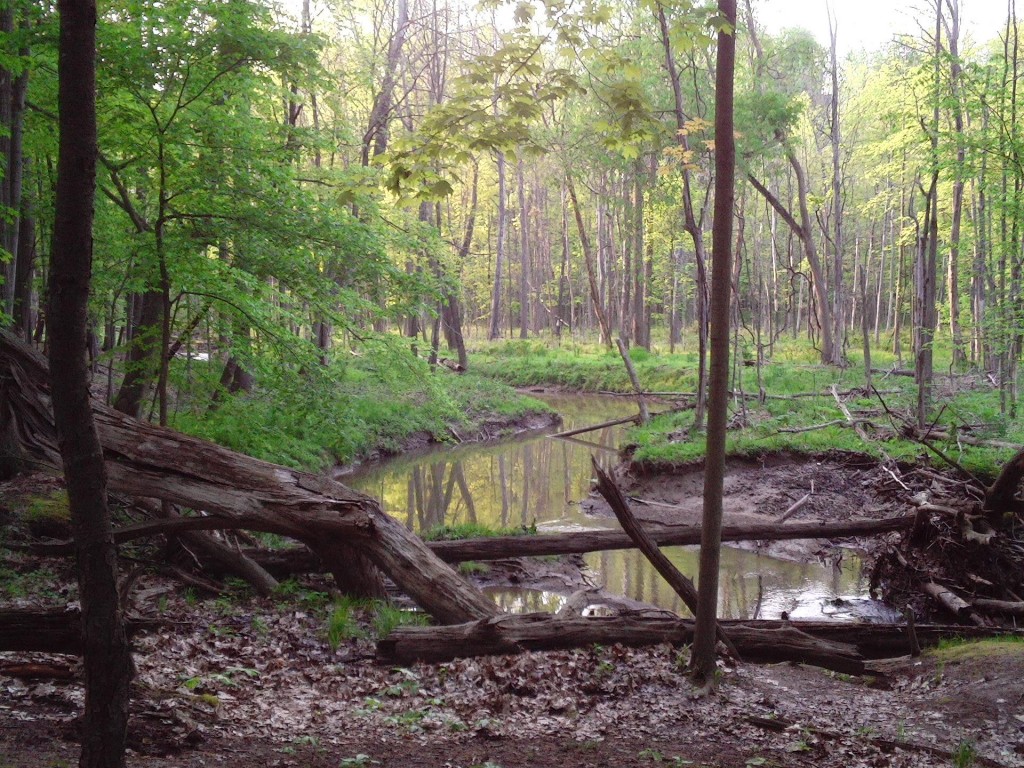
What It’s About: This is about Judas’ replacement among the twelve. The scene is one in which the eleven apostles–Judas was indisposed, more on that in a moment–work to discern which person should be added to the group to get back to the number twelve.
What It’s Really About: This is a fairly fascinating story, because it tells us that the number twelve was very important. It’s not intuitive, at least to me, that the number of the apostles would HAVE to be twelve. Wouldn’t it be more important for the apostles to simply be defined as the ones who were with Jesus during his lifetime? And wouldn’t we expect that, as those apostles died out, the number of apostles would dwindle? Apparently not. It seems that the number twelve was important, and it’s not hard to see why. Twelve is found throughout the bible as a number of completeness and wholeness, most famously in the twelve tribes of Israel. So, these Jewish followers of this Jewish messiah probably understood that for their Jewish movement to be legitimate, they needed twelve–just like Israel needed twelve tribes.
What It’s Not About: The lectionary selection leaves out verses 18-20, which is too bad, because this, too, is a fascinating story. There are two stories in the bible about what happened to Judas. There is one in Matthew 27:3-10, in which Judas realizes what he has done, throws back his pieces of silver, and hangs himself. Then there is this one in Acts, which tells a different story. Here, Judas uses the silver to buy a field, and then falls down in, and “”he burst open in the middle and all his bowels gushed out.” So THAT’S different. Some people try to synthesize these–maybe he hanged himself, and after dying his bloated corpse fell and exploded–but these are pretty clearly two different traditions of Judas’ death. Why is this one tucked in here to the story of the apostles completing the twelve? What does it do? It’s parenthetical enough that the NRSV literally puts it in parentheses. (Remember, the Greek doesn’t have punctuation, at least in the way we understand it, and so any punctuation is a translation and editing choice).
Maybe You Should Think About: I suspect that this story is the root of apostolic succession–this notion that authority is conferred by one authorized person to another. Ordination, for most Christian communities, involves some passing on of authority from one or more previously-ordained person to the newly ordained person. It’s possible, then, to trace apostolic lineages, and some traditions do this. Maybe we should think about whether and why this is important. Why do we think this way, and what were the apostles thinking when they started this tradition?
What It’s About: The wicked don’t prosper, at least ideally.
What It’s Really About: This psalm is somewhat typical of the psalms as a whole, in that it provides a vision of the righteous life, and warns people against the perils of a wicked life. It employs some nice metaphors–trees planted by water, chaff in the wind–to describe the fates of those who are righteous and wicked, respectively.
What It’s Not About: I don’t know if it’s about this or not, but I’m intrigued by two phrases: “the seat of the scoffers” and “the congregation of the righteous.” Both of these seem just a little too specific to be pure metaphor. I’m sure some scholar has written on this, and I’m simply ignorant, but I bet that these phrases refer to some historical thing–some aspect of the psalmist’s community that epitomized the kinds of people in view in the psalm.
Maybe You Should Think About: Sometimes we gain such moral clarity with the benefit of thousands of years of distance and hindsight. This psalm is so clear on who the good guys are and who the bad guys are. There isn’t a lot of messiness here. Real life, of course, is harder. It’s not always easy to tell the righteous from the wicked, and the righteous, if they’re truly righteous, will be the first to tell you that there is more than a little wicked to them too. In a world that’s not so clear-cut, how can we think about the ways human beings act in the world, and how sometimes the consequences don’t seem to match? This is the question that the book of Job asks, and although we don’t get many clear answers there either, it’s still a question worth asking.
What It’s About: This is about eternal life in God’s son.
What It’s Really About: This is the final chapter of this epistle, and this section is really the first of two closing sections of the letter. The author, here, is trying to sum of a message, and he (probably) is harkening back to those classic Johannine themes: life in God’s son.
What It’s Not About: It’s not about me, but I can’t help but mention here that the Johannine literature (gospel of John, epistles of John) are one of the things I’ve been “converted to” through my graduate work in biblical studies. (Paul is the other one…I love Paul now). The Johannine material is so rich in its own symbolic and theological world, and it’s really fascinating to read it all together and try to figure out what was going on. In some ways, the John material is like an island, isolated from everything else, where evolution has taken a different path than it has everywhere else. The animals are all different, the plants fill different niches, and so forth. The John stuff is just its own world, and I don’t know that it gets enough respect. This little passage is a great encapsulation of a couple (but not all) of the Johannine themes.
Maybe You Should Think About: This feels like a closing, but verses 14-21 are still to come. Why all the endings? And why does 21 feel like it’s not an ending?
What It’s About: This is a prayer prayed by Jesus, the last one before his death, on behalf of those in his care. We don’t have the whole prayer in this excerpt (it extends from the beginning of the chapter to verse 26), but the section we have seems to be making reference to a smaller community to whom Jesus has witnessed. Jesus is asking God to continue watching over them, and protect them from the evils of the world.
What It’s Really About: The Jesus we meet in the Gospel of John is different from the one we meet in the other gospels. John’s Jesus is much more confident, much more divine, and much more self-consciously a redeemer and savior than he is in the synoptic gospels. Compare this prayer to the prayers that precede the arrest in the synoptics. There, Jesus prays that the cup might pass from him. He’s obedient, but perhaps not as confident as we might think. But here, in John, the prayer is utterly confident, and Jesus’ only concern is for those he is leaving behind. This is a marked contrast to his portrayal in the other gospels.
What It’s Not About: It’t not about the last six verses of the prayer. Curious.
Maybe You Should Think About: What does this prayer say about Jesus’ relationship with God? What does it say about Jesus’ power? Jesus is praying to God (“the father”) for the protection of his people. The author of John has a very, very high opinion of Jesus’ divinity, but even this Jesus seems to need to ask God for intervention with regard to the world. Jesus doesn’t seem to have the power (or the liberty) to act on his own. It’s easy to read too much into these things (the author of John probably didn’t mean for us to read this prayer like an organizational flow chart), but it’s an interesting thing to think about, isn’t it?

